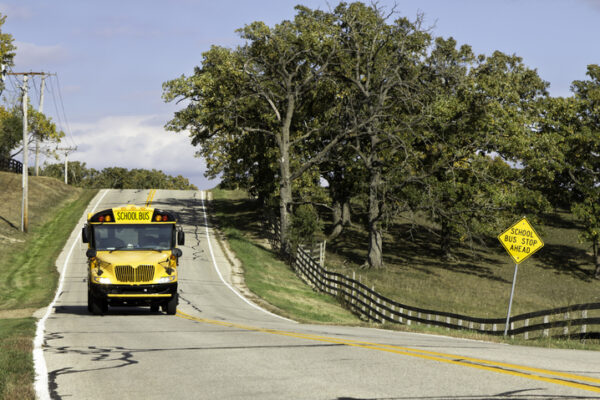Texas is responsible for educating more rural students than any other state, with students of color comprising nearly half of the student population and more students living in poverty compared with urban districts. Rural schools are also more likely to have teachers with less experience, lower certification exam scores, and less ability to attract specialized teachers, which reduces access to special education and Advanced Placement courses.
It is no secret that the pandemic has affected teacher recruitment and retention rates. What isn’t being reported much is the substantial impact on rural schools in Texas — affecting nearly 700,000 students across our state. Retention and recruitment rates are dropping, and our state leaders should make recifying this a key priority.
Longstanding trends have shown that rural schools face common teacher recruitment challenges — oftentimes the more rural the school, the more challenging recruiting and retaining a qualified teacher becomes. Lower base salaries, limited local teacher supply, and geographic and social isolation are all often cited problems.
An increase in workload due to the pandemic is triggering an upsurge in teacher turnover. Resignations create more work for the remaining teachers, which creates more turnover. For example, one district recently received resignations from 57 teachers during the week leading up to Christmas break.
As education researchers, we speak regularly with superintendents, school board members, principals and teachers in Texas and other states. Every state is confronting similar problems. Texas, however, should be a national leader given its large rural population.
In 2016 Mike Morath, commissioner of the Texas Education Agency, tasked the Texas Rural Schools Task Force with identifying current challenges in rural districts. This was a good start, but now is the time for policies targeting rural teacher recruitment and retention.
What the state should do is raise existing teacher salaries, particularly in rural districts. Salary incentives can keep rural teachers working in the same schools for longer. Raising salaries and improving school working conditions can also help the state recruit talented workers from other professions who are seeking new careers as part of the “Great Resignation.” To further induce talented professionals from other fields, the state can reduce the cost of obtaining a teaching certification.
Texas should also focus on funding rural teacher preparation programs in partnership with universities. More than half of Texas teachers are prepared in alternative certification programs, but alternatively certified teachers are less likely to stay on the job beyond five years than those trained at universities. Increasing salaries, improving working conditions and incentivizing university-based preparation could help stabilize the rural teacher workforce.
The state would also be wise to subsidize tuition loans leading to teacher certification and offer hardship pay for the most challenging or physically isolated settings. Congress has considered funding hazard pay or “Patriot Pay” as bonuses for health care workers and other essential personnel. Rural teachers are no less essential and continue to be at great risk of contracting COVID-19.
Finally — and especially given the current health crisis — Texas should ensure that rural districts have the mental and physical health infrastructure to support teachers and their communities.
Rural schools play an important role in their communities’ health, made even more important given that Texas has seen the highest number of rural hospital closures since 2005. This means that rural teachers have greater influence on their communities’ well-being than teachers in urban areas, where other institutions hold a dominant role.
Each of the state’s nearly 700,000 rural children deserves a caring, well-trained teacher, especially amid a deadly and disruptive pandemic. The rural teacher pipeline has always been deprioritized, but for Texas to be truly a vibrant state, our leaders must innovate and invest on behalf of rural children.
David DeMatthews is an associate professor in the Department of Educational Leadership and Policy at The University of Texas at Austin.
Annie Maselli is a doctoral candidate in the Department of Education Policy Studies at The Pennsylvania State University and an associate for the Center on Rural Education and Communities.
A version of this op-ed appeared in the Austin American Statesman, Lubbock Avalanche-Journal, Abilene Reporter News, Amarillo Globe News, MSN and the San Antonio Express News.




